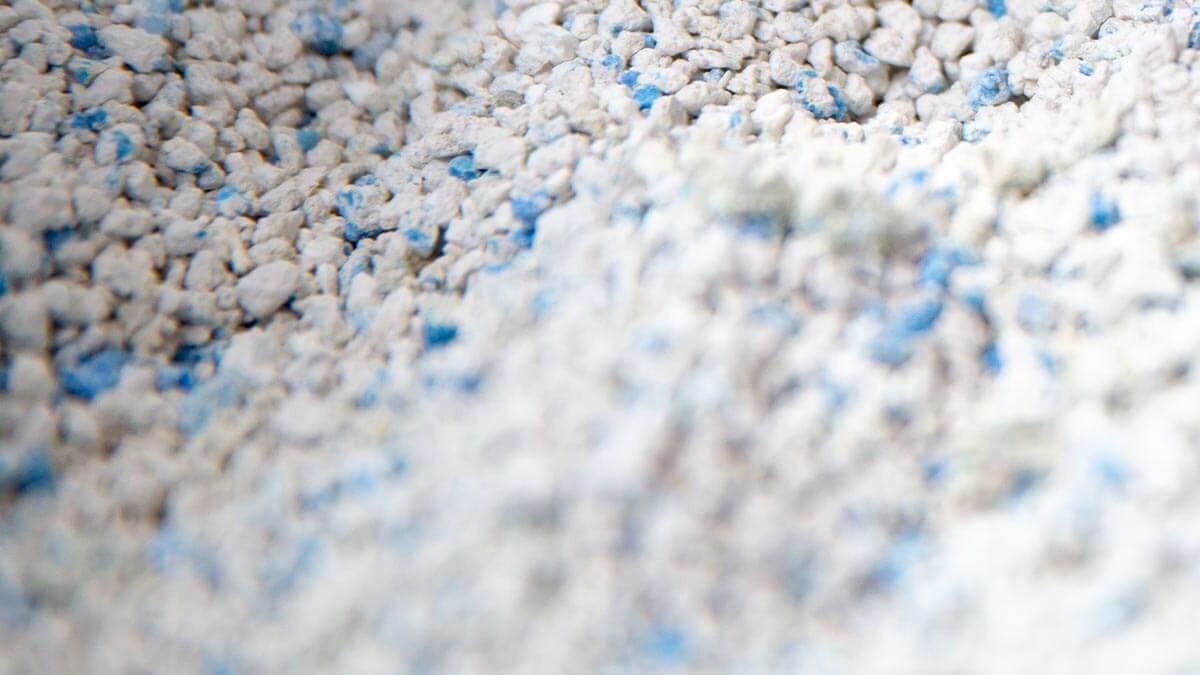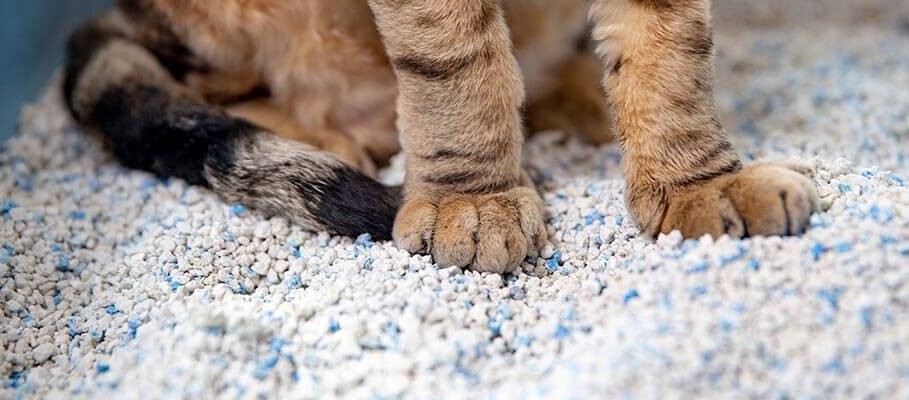Table of Content
- The Environmental Impact of Traditional Litter for Cats
- A New Era: Eco-Friendly Litter for Cats Alternatives
- Clumping Litter for Cats: Balancing Convenience and Sustainability
- Wood Litter for Cats: A Natural Solution for Eco-Conscious Businesses
- Cat Litter for Kittens: Gentle and Green Options
- Biodegradable Litter Boxes and Accessories for Cats
- Improving Brand Image and ROI with Eco-Friendly Litter for Cats
- Pro Tip
- Implementing Eco-Friendly Litter for Cats: A Roadmap for Businesses
- Conclusion
1. The Environmental Impact of Traditional Litter for Cats
Traditional litter for cats, mostly made from clay, has been a popular choice for years. But its impact on the environment is becoming a big concern.
The main issue is how bentonite clay, used in clumping litter for cats, is mined. This clay is taken from the ground using strip mining, a process that removes large sections of earth, destroying natural habitats and leaving the land bare.
This loss of vegetation and topsoil makes it harder for ecosystems to recover and can cause soil erosion, which pollutes rivers and reduces soil quality.
Another problem is that clay litter doesn’t break down naturally. Once used, it goes straight to landfills, taking up space and potentially trapping decomposing waste, which can release methane, a harmful greenhouse gas.
Some litters for cats also contain silica gel crystals for odor control. While effective, silica dust can irritate the lungs of both cats and humans. Plus, making silica gel requires a lot of energy, adding to its environmental impact.
Transporting heavy clay litter is another issue. Moving it from mines to stores burns a lot of fuel, increasing carbon emissions. With millions of tons of cat litter used worldwide every year, the environmental impact is massive.
This is why businesses and pet owners are looking for more eco-friendly options, like wood litter for cats or other biodegradable alternatives.
2. A New Era: Eco-Friendly Litter for Cats Alternatives
The pet industry is seeing a big shift toward eco-friendly litter for cats. These new options use natural, biodegradable, and compostable materials, making them much better for the environment. Many cat owners are now choosing plant-based litters made from corn, wheat, wood, or recycled paper.
These alternatives have several benefits. They are often lighter than clay litter, which helps cut down on transportation emissions. Many break down naturally, reducing landfill waste. Some even control odors better than traditional litters. Plus, plant-based litters create less dust, which is better for the breathing health of both cats and their owners.
For example, corn and wheat litters make use of leftover farming materials, supporting a more sustainable system. Wood litter for cats, usually made from reclaimed wood, absorbs moisture well and helps control odors naturally. Recycled paper litter is another great choice—it's dust-free and highly absorbent.

3. Clumping Litter for Cats: Balancing Convenience and Sustainability
Clumping litter for cats is popular for its convenience and odor control. Businesses are now seeking eco-friendly alternatives that match these qualities.
Thankfully, innovations in plant-based materials have led to a new generation of sustainable clumping litters.
Here are some key sustainable options for clumping litter for cats:
- Corn-Based Litter: Made from corn byproducts, offers excellent clumping, is often flushable (in small amounts, check local regulations), lightweight, and low in dust.
- Wheat-Based Litter: Derived from wheat byproducts, forms firm clumps, is absorbent, biodegradable, compostable, and often fragrance-free.
- Grass Seed Litter: Made from grass seed, some litters are made from upcycled by-products. Offers similar clumping capabilities as that of clay litter, creates less dust and is biodegradable.
- Walnut Shell Litter: Utilizes crushed walnut shells. Offers strong clumping ability and excellent odor control. Low dust and low tracking. Biodegradable and sustainable.
- Blended Litters: Combine various plant-based materials for tailored performance, offering a balance of clumping, absorbency, and odor control.
However, businesses need to consider the sourcing, processing, performance, and cost-effectiveness of these litters.
They also need to effectively communicate the benefits to customers, highlighting both environmental advantages and performance.
How can businesses best convey the value of eco-friendly clumping litter for cats and drive adoption? This is crucial for integrating these litters into the market and advancing sustainability in the pet care industry.
4. Wood Litter for Cats: A Natural Solution for Eco-Conscious Businesses
Wood litter for cats offers a sustainable and effective alternative to traditional clay. It's made from reclaimed or sustainably sourced wood, providing natural odor control and high absorbency.
Key advantages of wood litter for cats:
- Natural and Biodegradable: Made primarily from pine, cedar, or blends of softwoods, it's a more eco-friendly choice that breaks down naturally.
- Excellent Absorbency and Odor Control: Wood fibers, especially in pellet form, are highly absorbent and naturally neutralize odors. Pine and cedar offer pleasant scents.
- Low Dust and Tracking: Pelletized wood litter, in particular, minimizes dust and tracking, promoting a cleaner and healthier environment.
- Variety of Forms: Available in pellets, granules, or shredded forms to suit different preferences, though pellets are most common for their superior performance.
- Sustainable Sourcing: Opt for reclaimed wood or look for FSC/SFI certifications to ensure responsible forestry practices.
Businesses looking to offer wood litter for cats should consider a few key factors.
First, sourcing matters—using reclaimed wood or wood certified by groups like FSC or SFI ensures sustainability.
Second, performance is important. Wood litter, especially pellets, usually absorbs well, controls odors, and has low dust, but different brands may vary.
Lastly, cost isn’t just about the price—it’s also about how long the litter lasts and how much is needed. Considering these factors, businesses can confidently offer wood litter for cats as a sustainable and effective choice for eco-conscious pet owners.
5. Cat Litter for Kittens: Gentle and Green Options
Cat litter for kittens requires special attention to safety due to their exploratory nature and developing systems. It's crucial to choose non-toxic, chemical-free options to prevent harm from accidental ingestion.
Safe and Eco-Friendly Options for Kittens:
- Softwood Litters (Kitten-Specific): Finely ground, low-dust, and free of strong oils or scents. Avoid cedar because its aromatic oils can be toxic to their developing livers and respiratory systems.
- Recycled Paper Litter: Highly absorbent, dust-free, gentle, and non-toxic if ingested in small amounts.
- Finely Ground Corn or Wheat Litter: Low-dust, soft, biodegradable, and specifically formulated for kittens.
When promoting eco-friendly cat litter for kittens, businesses should focus on what pet owners care about most.
Instead of just listing features, highlight how the litter is safe and gentle for a kitten’s needs while also being good for the planet. Since it’s made from sustainable, biodegradable materials, it appeals to environmentally conscious buyers.
Trust can be strengthened with vet or breeder endorsements and certifications.
Lastly, remind pet owners that choosing this litter helps their kitten develop good habits while supporting a more sustainable future. This approach helps them see the real value of eco-friendly cat litter for kittens.

6. Biodegradable Litter Boxes and Accessories for Cats
The push for sustainability in the pet industry goes beyond eco-friendly litter for cats—it now includes cat care accessories like biodegradable litter boxes, liners, and scoops.
These products help reduce waste and cut down on plastic use by using materials like bamboo, recycled cardboard, and plant-based plastics.
Examples of Eco-Friendly Cat Care Accessories:
- Biodegradable Litter Boxes – Made from bamboo fiber, these boxes are strong, lightweight, and break down naturally, unlike plastic ones.
- Compostable Litter Box Liners – Usually made from cornstarch, these liners provide a leak-proof barrier and fully decompose in composting facilities (check local guidelines for pet waste).
- Eco-Friendly Litter Scoops – Created from recycled plastic or bioplastics, these scoops work just as well as regular ones but are more sustainable.
This trend opens new doors for businesses. Offering a full range of eco-friendly cat care products helps companies meet growing demand, stand out from competitors, and build a strong reputation in the sustainable pet care market.
7. Improving Brand Image and ROI with Eco-Friendly Litter for Cats
Adopting eco-friendly litter for cats is not only good for the environment but also a smart business decision.
More and more pet owners are looking for sustainable products, so offering eco-friendly options can improve a business’s brand image, attract new customers, and build loyalty.
Eco-friendly litters can also save money over time. While the upfront cost may be higher, businesses can reduce waste disposal fees and benefit from marketing opportunities that lead to a positive return on investment (ROI).
Additionally, supporting sustainability can open doors to new partnerships. Businesses can position themselves as leaders in the eco-friendly pet care market, attracting like-minded investors and collaborators.
To effectively communicate the value of eco-friendly litter for cats to B2B clients, businesses should highlight the long-term benefits and align with sustainability trends. They can measure ROI by tracking cost savings, customer growth, and market share improvements.
The American Pet Products Association (APPA) is a great resource for market trends and sustainability insights. Their website can help businesses stay informed and ahead of the curve. Here's a link to their homepage: Leading Pet Industry Association | American Pet Products Association.
8. Pro Tip
A good tip for B2B companies is to focus on teaching your clients—like retailers, distributors, and other businesses—about the benefits of eco-friendly litter for cats. Provide them with marketing materials, product samples, and helpful data they can use to educate their customers.
Sharing your knowledge about sustainable cat care can help build stronger relationships with clients and position your company as a leader in eco-friendly pet products. Creating a guide or report that explains the environmental and business benefits of eco-friendly litter for cats can also be a great way to support your efforts.

9. Implementing Eco-Friendly Litter for Cats: A Roadmap for Businesses
Switching to eco-friendly litter for cats requires a clear plan.
Here’s a simple guide for businesses:
- Research and Development: Look into different eco-friendly litter options to see which ones work best for your customers.
- Sourcing: Find reliable suppliers of sustainable materials that follow ethical and environmental standards. You can ask for quotes from suppliers here: Europages RFQ.
- Product Development: Create or source eco-friendly litter for cats that meets your quality standards and customer needs.
- Testing and Certification: Test your products to ensure they work well and are safe. Get certifications (like BPI Compostable or FSC Certified) to build trust with your customers.
- Marketing and Education: Create marketing materials that show the environmental and business benefits of your eco-friendly products. Teach your sales team and clients about these benefits.
- Partnerships: Work with other businesses or organizations in sustainability to boost your reach and credibility. You can also get help through a consultation with our team: https://supplier.europages.com/en/rfc.
- Feedback and Iteration: Collect feedback from clients and consumers to improve your products and processes.
For more information about cat products, read these insightful articles:
- Sustainable Cat Food: Eco-Friendly Options for the B2B Market
- Cats and Nutrition: Wet or Dry Food for Cats?

10. Conclusion
The move towards eco-friendly litter for cats is a big trend in the pet industry, driven by environmental concerns and changing consumer preferences.
For B2B professionals, adopting this trend brings many benefits, including a stronger brand image and better ROI.
Understanding the different eco-friendly options, their pros and cons, and the business reasons for choosing them allows companies to make smart decisions that benefit both the planet and their profits. The path to sustainability in the pet industry is ongoing, with both challenges and opportunities.
While this article focused on eco-friendly litter, sustainability in pet care covers many other products. What other pet products could also benefit from an eco-friendly approach, and how might these innovations shape the future of the pet industry? How will technology drive further progress in sustainability in this sector?
Find Cat Litter solutions for your Project!
Vegstav Timbers SRL: This company offers eco-friendly, biodegradable cat litter pellets made from natural materials that provide superior absorbency and odor control for a safe and clean litter box.
PRUVASYA: Starting with locally sourced clay cat litter, this business has expanded its product line to include items like hazelnuts and coffee, with the goal of bridging the gap between global manufacturers and export/import businesses, ultimately aiming to establish marketing companies for direct consumer reach.
PURIF'AIR: Specializing in air and odor purification, offers Pur'sand, a 100% French-made, natural, and biodegradable powder ideal for pet bedding, effectively blocking odors, drying urine, and deodorizing.
Pame Carbon: A Turkish manufacturer and exporter of activated carbon and biochar, offers high-quality solutions like Powder Activated Carbon (PAC) and Granular Activated Carbon (GAC) suitable for various applications, including cat litter odor control, serving clients in over 54 countries.
Normfeed: Produces high-quality pet products, including cat litter for kittens, aiming to provide effective options at reasonable prices and exporting to over 50 countries from their 16,000-ton monthly capacity facility.
OUATECO: A manufacturer of bio-based, low-carbon insulation, also produces a range of recyclable, plant-based cat litter, available for marketing in pet stores.
Donmezoglu Domestic: Produces and exports "Kikikat" cat litter, a high-quality, 99% dust-free, calcium bentonite litter that clumps quickly and controls odor, and is distributed in the USA where they also have a warehouse and company.
ARMINAKIL BENTONIT MADEN: Processes bentonite from their significant portion of Turkey's reserves, supplying wholesalers domestically and exporting internationally, and also produces bentonite-based cat litter.
Vetcats: Provides natural and hygienic cat litter with high, quick liquid absorption and strong clumping for easy cleaning and odor control.
WOODBIOMA: A Lithuania-based wood fuel product supplier, offers a wide range of items, including wood pellets which they recommend as a natural and highly absorbent cat litter filler suitable for various small animals.
Güllük Pet: A Turkish pet food and accessories manufacturer and distributor since 1997, exports a wide range of products, including their DAISY and CUTE FACES brand cat litter, cat and dog food, bird and fish food, and other pet accessories to over 500 customers globally.
Ceylan Mineral Mining: Founded in 1960, extracts and processes bentonite clay, offering it as raw material to industries and as finished products like their "Toi Moi" brand of sodium bentonite cat litter, available in various scents and formulations including activated carbon.
MEREDISTRIBUTION: a wholesaler and distributor of pet food and accessories in France, offers a variety of products, including clumping cat litter.
Private Joint-Stock Company “Weighting Plant”: Produces hygienic bentonite cat litter made from 100% natural bentonite clay, designed to absorb moisture, harmful substances, and odors.

